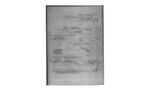User talk:Simon/Annotating
15.06.19 interfaces for annotation
The formal qualities of annotations are defined by the tools used to make them, and also the cultural uses of these. Given a pen, most people will write, although it is also possible to draw or use it in other ways. With a keyboard it seems most appropriate to type. With a mouse, one can click on things, and select them.
What happens when these are retained, transformed and isolated from the source?
digital annotations
Retained digital annotations are rare in the wild, but I found one PDF of Jorge Luis Borges "The Garden of Forking Paths" that had underlinings and highlighted text. The interesting thing is that these change appearance slightly depending on the e-reader software used to display the text.
The first two spreads of the Borges PDF:
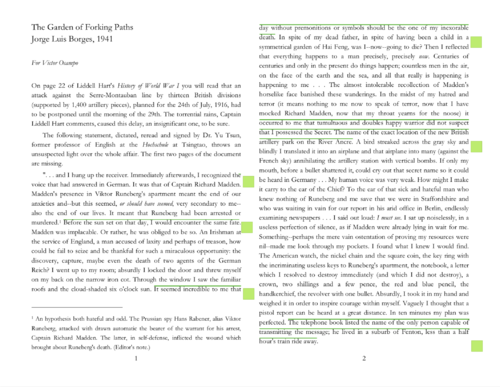
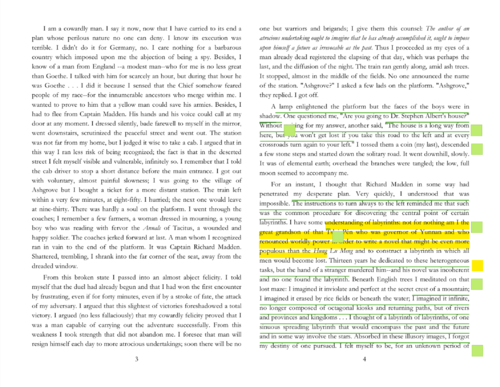
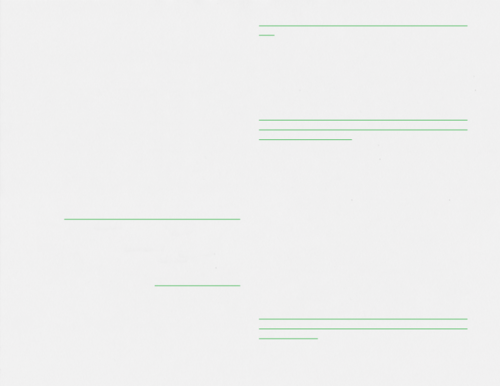
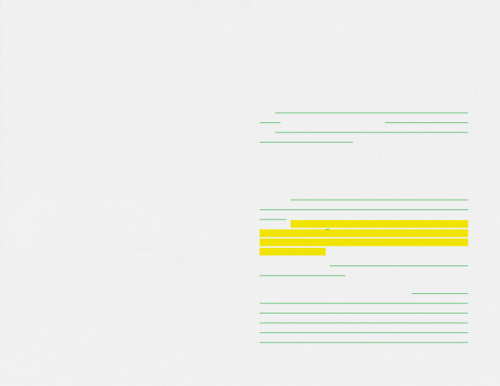
Digital annotations transcribed from a PDF of Jorge Luis Borges' "The Garden of Forking Paths"
analog annotations
Another text that came pre-annotated was Ursula K Le Guin's "The Carrier Bag Theory of Fiction". For this, I placed scans in a vector graphics program and digitised pen marks. I also included the text that was annotated with circles, underlines and lines in the margins.
The first two spreads of the Le Guin PDF:
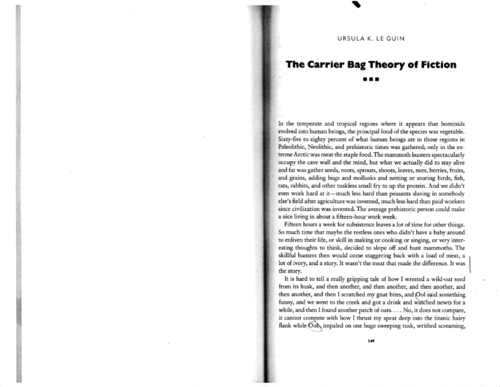
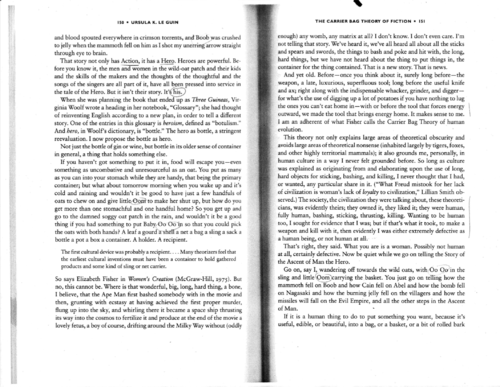
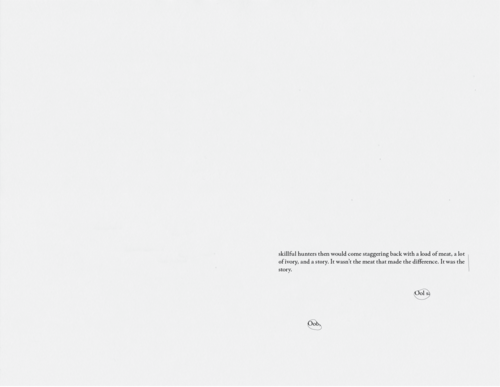
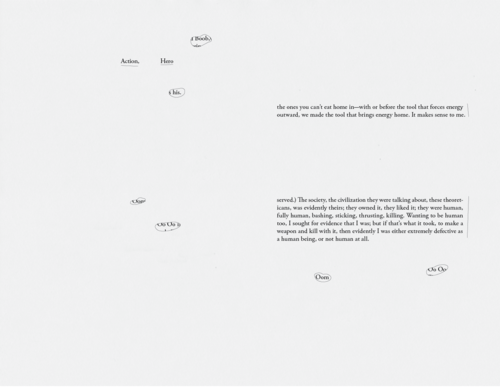
Hand-drawn annotations digitally transcribed from a PDF of Ursula K. Le Guin's "The Carrier Bag Theory of Fiction"
bootleg book: The Carrier Bag Theory of Fiction
Printed: 25.09.19
Dimensions: 90x120mm
Cover stock: Clairefontaine Trophee (ivory) 120gsm
Text stock: Clairefontaine Trophee (ivory) 120gsm
Binding: Staple bound
Pages: 16pp
Ursula K. Le Guin's short essay appears in a compilation called Dancing at the Edge of the World, which I've found impossible to find online through the usual pirate libraries such as Library Genesis, aaaaaarg.fail and Monoskop. Perhaps this points to a gender bias in what is perceived as knowledge (Le Guin was a woman wrote mostly science-fiction)? In lieu of not being able to find the compilation, I decided to print this book in a very small size (90x120mm) and retain the annotations from the PDF I found. I digitised them by making them into vectors, and printed the text and annotations in green. In this way I wanted to speculate on what would happen when a reader was confronted with annotations that seemed to be part of the source, not a para-text added after publication.

